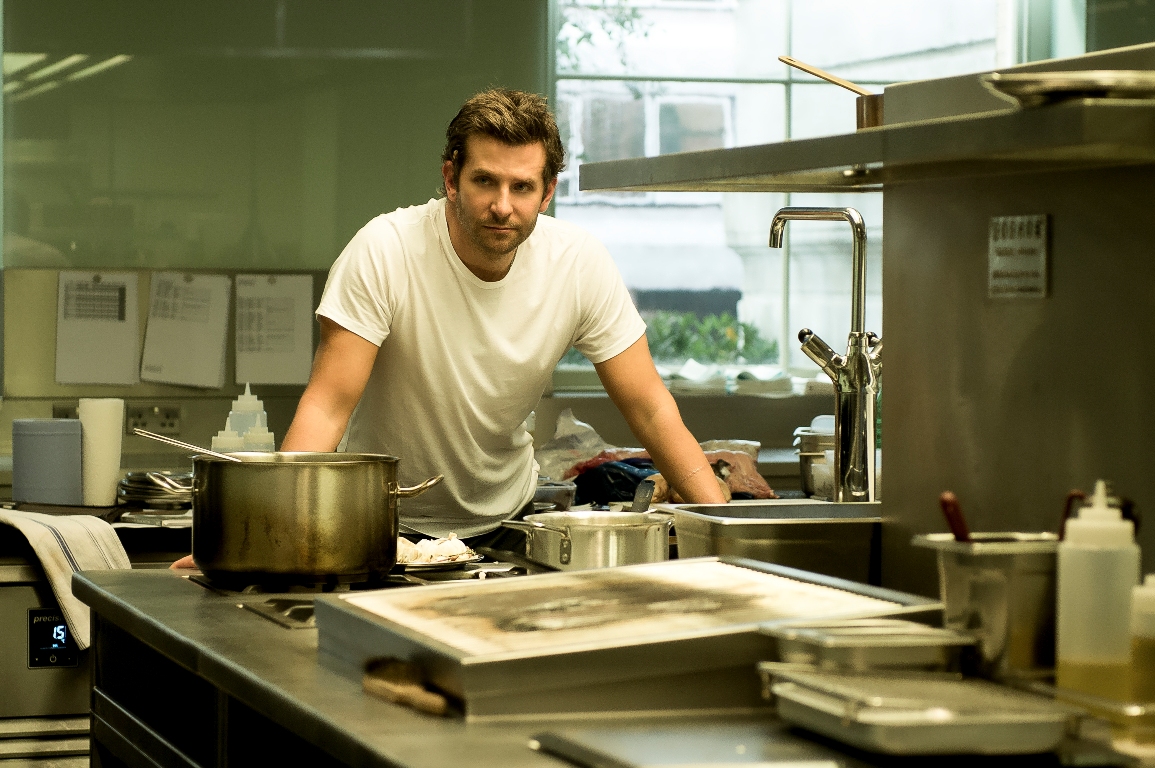
I attended my screening of Burnt with a rather large chip on my shoulder. Based on the trailer alone, I knew that the film was riddled with the worst kind of TV-movie clichés—that Bradley Cooper played a rebel chef with a five o’ clock shadow, a leather jacket, and a motorcycle (a trifecta of clichés!). I also knew that the film was trying to capitalize on the unexpected success of last year’s indie charmer Chef. And I knew that Burnt was yet another story of a jerk (a la Don Draper, House, Steve Jobs, et al) who people want to save because he’s some sort of (in this case, culinary) genius and, oh yeah, ridiculously, ridiculously good looking.
Can we officially put a moratorium on such stories? Is there some sort of petition I can sign?
With that being said, I’m almost embarrassed to admit that I liked Burnt—at least enough to file it under “guilty pleasure.” Yes, the aforementioned clichés are all intact—in some cases worse than I’d even feared. But thanks to Bradley Cooper, who doesn’t seem to realize that he’s in a bad movie, and some incredibly slick direction from John Wells (August: Osage County), Burnt is surprisingly easy to digest.
Cooper plays an American chef named Adam Jones who was a kind of enfant terrible celebrity in Paris before he screwed it all up by being too much of a womanizing, pill-popping, irresponsible drunk. After serving a self-imposed penance of shucking a million oysters in New Orleans, Jones heads to London where he hopes to redeem his good name and earn his coveted third Michelin star. We’re supposed to think that Jones is somehow humbled, but he still acts like a bossy and abusive jerk—and yet people indulge him. In one truly ill-advised scene, he physically assaults a female sous chef (Sienna Miller)—and not only does she continue to work for him, she and Jones become romantically involved. (Indeed, everyone who meets Jones seems to fall for him—including Daniel Brühl as the uptight owner of the restaurant where Jones is head chef.)
As food porn goes, Burnt is surprisingly less appetizing than the likes of Chef and Big Night (which Burnt explicitly nods to at one point), partly because we’re in the realm of true haute cuisine here. The food is gorgeous, lovingly plated, but it’s more fancy than mouthwatering. What’s more, for a foodie film there are extremely few scenes of people tasting Jones’ food and dissolving into rapturous puddles of ecstasy, a veritable staple of the genre.
The excellent supporting cast, including Emma Thompson as the therapist Jones is forced to see, Omar Sy as an old French colleague Jones recruits for the new restaurant, and Uma Thurman in a near-cameo as a food critic, are mostly wasted. (At least Sy affords Cooper the opportunity to speak a lot of French. Oui to that. ) As a hardcore fan of The Americans, I was pleasantly surprised to see Matthew Rhys in a colorful performance (there’s a fussy mustache involved) as a rival chef who keeps Jones on his toes.
Mostly, I thought Burnt was ridiculous. And yet I cannot tell a lie. Its familiar beats, comely cast, and lively kitchen montages entertained me. My hunch is that you’ll probably feel the same way. Something along the lines of: “Man, that was a dumb movie. So why did I enjoy it so much?”
